The U.S. and Australia recently agreed to cooperate on future space-surveillance projects, including tracking satellites and space debris. In an e-mail interview, Kirk Woellert, a U.S. government liaison and analyst for Interorbital Systems, discussed U.S.-Australia cooperation on space surveillance. WPR: What is the current status of bilateral space cooperation? Kirk Woellert: The U.S. and Australia have enjoyed a long history of both civil and national-security cooperation in space. On the civil side, cooperative agreements have been in place to conduct activities such as deep-space tracking, earth observation and high-altitude balloon flights. The Parkes Radio Observatory and the Honeysuckle Creek station […]
Latest Archive
Free Newsletter
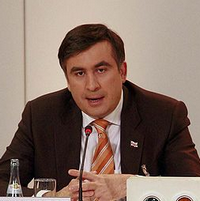
TBILISI, Georgia — Since coming to power in the 2003 Rose Revolution, the government of Georgian President Mikheil Saakashvili has declared in no uncertain terms its desire and intention to bring the country into the West’s orbit. That goal has been most visibly illustrated by Georgia’s efforts to join the NATO alliance as a full member. But geopolitical realities continue to interfere with those plans, forcing Tbilisi to adjust its foreign policy accordingly. While pro forma support in Washington is widespread for Georgia’s right to pursue NATO membership, most would give long odds on Tbilisi’s chances of actually gaining acceptance […]

Two developments this week illustrated the “one step forward, one step back” nature of global nuclear nonproliferation efforts. On the one hand, Iran announced further progress in its domestic nuclear program, increasing Tehran’s potential ability to make nuclear weapons should it ultimately decide to do so. On the other, the International Atomic Energy Agency (IAEA) took an important step toward discouraging the further spread of uranium-enrichment technologies, which could be used to pursue nuclear weapons capabilities, by voting to establish the first completely multinational nuclear fuel bank. Although the IAEA move will not solve the immediate problem presented by Iran, […]
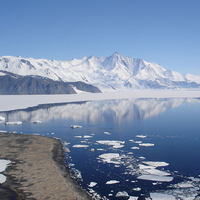
In October, India announced its inaugural scientific expedition to the South Pole, with the news well-received by the Antarctic Treaty nations, according to the Times of India. At about the same time, the Chinese icebreaker Snow Dragon embarked on its 27th expedition to the Antarctic, with one aim of its voyage to allow a team of Chinese engineers and logistical staff to renovate one of the country’s two main research stations in the southern polar region. The two stories reflect the increasing attention that the two countries are paying to the Antarctic region. India has been involved in the Antarctic […]

H.G. Wells’ futuristic 1933 classic, “The Shape of Things of Come,” predicted a post-apocalyptic world in which humanity’s recovery would depend on the airplane as the primary mechanism for both travel and political rule — the benevolent “dictatorship of the air.” The book reflected Wells’ prescient fears of catastrophic world war and his faith in technology’s capacity to tame mankind’s worst instincts. A book due out in March entitled, “Aerotropolis: The Way We’ll Live Next,” is the closest thing to a real-world vision to rival that of Wells. The book, written by journalist Greg Lindsay, is based on the visionary […]
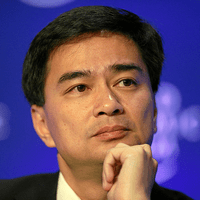
The withering of Thailand’s democracy is closing potential avenues for political resolution of the country’s ongoing crisis and may lead toward widespread violence, and possibly even an armed revolt. The latest episode in this ongoing, self-destructive process was the Constitutional Court’s decision on Nov. 29 to dismiss a case against the ruling Democrat Party — which had been accused of electoral fraud — on a technicality. In ruling that the case was not brought within the prescribed time period, the court declined to consider the merits or the opinion of the prosecutor. The party risked being dissolved in the event […]
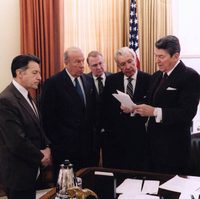
At this week’s Organization for Security and Cooperation in Europe summit in Astana, Kazakhstan, U.S. Secretary of State Hillary Clinton declared that the unauthorized release of U.S. diplomatic documents by the Wikileaks organization “will not in any way interfere with American diplomacy or our commitment to continuing important work that is ongoing.” Clinton is correct: The vital work of international affairs will continue. Diplomacy will not grind to a halt because of the leaks, most of which fall under the category of what Paul Pillar describes as “titillation.” But although the embarrassment will fade away with time, will things then […]
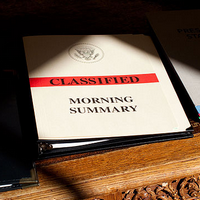
In a part of the world where ever-present conspiracy theories waft through the air, blending easily with the aroma from water pipes and the sounds of the Muslim call to prayer, the massive document release from Wikileaks was received with familiarity. It’s not easy to shock the people of the Middle East, certainly not with revelations about the conversations and machinations of the rich and the powerful. After all, the region has stood at the crossroads of political intrigue for thousands of years, and people have become almost immune to shock. Still, the absence of real surprises does not equal […]
This analysis of Wikileaks founder Julian Assange’s vision of American power has been making the rounds. According to the author, Wikileaks’ objective is not to release information that the government wants to remain secret just for the sake of releasing the information, but rather to provoke a reaction within the government that will ultimately undermine its ability to function effectively. Andrew Sullivan highlights this passage as the takeaway: [W]hile an organization structured by direct and open lines of communication will be much more vulnerable to outside penetration, the more opaque it becomes to itself (as a defense against the outside […]
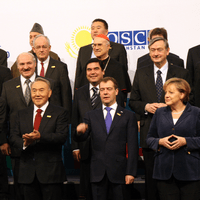
Leaders of the Organization for Security and Cooperation in Europe (OSCE) are currently gathered in Astana, Kazakhstan, for the group’s first summit in more than a decade. The OSCE has many responsibilities due to its comprehensive agenda, but its most urgent task is to help mobilize greater support for Afghanistan. Although Afghanistan does not belong to the OSCE, several member states border the war-torn country, while many more have sent military forces to help combat the Taliban insurgents threatening the internationally recognized Afghan government. The challenges facing the OSCE in Afghanistan derive mainly from the porous borders between northern Afghanistan […]
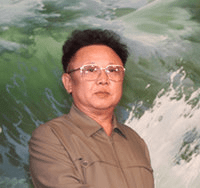
On May 12, 2010, Minxin Pei wrote in an op-ed for the Diplomat that “what is most worrying about a possible North Korean collapse is that the key players in the region are not talking to each other, even informally, about such an eventuality.” Thanks to the Wikileaks release of a huge cache of U.S. diplomatic cables, we now know that this isn’t true. In February, a South Korean diplomat predicted the collapse of North Korea within a couple of years after the death of Kim Jong-Il, and argued that sufficient economic considerations could placate China for the loss of […]
Having skimmed a few more write-ups of the Wikileaks diplomatic cables release, I have to sign on with the consensus that the revelations offer a very reassuring inside view on American diplomacy. (Sam Roggeveen here, Andrew Sullivan here, and Fred Kaplan here. Update: And the EU Observer, citing European diplomats, here.) For his part, Art Goldhammer is underwhelmed by this Le Monde summary of the dispatches sent by the U.S. Embassy in Paris regarding French President Nicolas Sarkozy, from both before and after his election to the presidency. Goldhammer rightly states that the account reveals relatively little that any close […]

Among the foreign policy issues on the U.S. Congress’ agenda during its lame duck session is the ratification of the New START Treaty, signed by Presidents Barack Obama and Dmitry Medvedev last April. The treaty is important in and of itself, because it reduces the American and Russian strategic nuclear arsenals and extends nuclear weapons verification measures interrupted when the START I treaty lapsed last December. But New START also represents a critical step in redefining the U.S.-Russian relationship, making it more than just an arms control arrangement. Russia is the world’s largest country, endowed with highly skilled human capital […]
In the latest of a series of violent incidents involving Islamic militants in Tajikistan, police forces clashed with suspected extremists in the country’s northern Isfara district this fall. The government has taken measures to crack down on growing religious extremism, but some Tajiks fear those steps could backfire.
Poland and Russia recently concluded a deal to increase the flow of Russian gas to Poland. In an e-mail interview, Ernest Wyciszkiewicz, program coordinator for international economic relations and energy security at the Polish Institute of International Affairs, discussed Poland-Russia relations. WPR: What is the recent history of Russia-Poland relations? Ernest Wyciszkiewicz: In recent years, Polish-Russian relations have been characterized by numerous crises and controversies over political matters. These extend to conflicting interests in their common neighborhood of Belarus and Ukraine as well as disputes over energy, trade and last but not least history — or more precisely, contradictory versions […]
